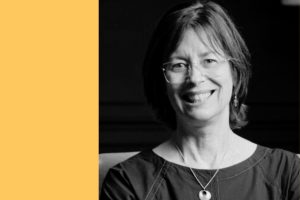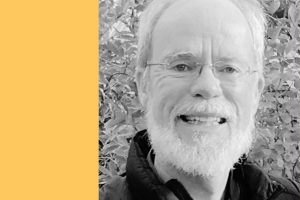Environment, Space and Place
Australian Academy of the Humanities 2024-08-23
Friday 15 November, 11.00am-12.30pm
Australians of The Lucky Country era were beginning to reimagine their place in the world, and even in the cosmos, in the era of space travel. This session will explore the ways available for Australians to think about environment, space and place today and their historical background; examining space, the planet, the Asia-Pacific region, and the nation as four interconnected levels of engagement. As Australia confronts the challenges of climate change, bushfires, floods and pandemics, how can the humanities inform solutions to our most pressing problems?
 Chaired by Professor Julia Horne
Chaired by Professor Julia Horne
Julia Horne is Professor of History and University Historian at the University of Sydney. She works and writes on the history and politics of Australian higher education. Her books include Australian Universities—A conversation about public good, (Public and Social Policy Series, Sydney University Press, 2022, co-edited with Matthew A.M. Thomas), Preserving the past: the University of Sydney and the Unified National System of Higher Education 1987–96 (Melbourne University Publishing, 2017, co-authored with Stephen Garton), and Sydney: the making of a public university (Miegunyah Press, 2012, co-authored with Geoffrey Sherington). She is currently working on the post-war Curtin-Chifley higher education reforms which reimagined Australian higher education as a national sector. The research project is funded by the Australian Research Council and is in collaboration with chief investigators from the Universities of Sydney, Tasmania and Melbourne.
Speakers
Associate Professor Alice Gorman FAHA
Beyond the Dish: Australian national identity in the Space Age
After the development of rocket technology in the Second World War, Australia was at the forefront of global space technology for decades. Despite this impressive record, many people are under the impression that Australian space industry started with the establishment of the Space Agency in 2018. Why don’t Australians embrace space as part of their national identity in the way that other nations have? I argue that it’s not from lack of trying. My hypothesis is that while Government support for space has been sporadic, politicised and timid, the Australian public enthusiastically engaged with space in a variety of ways from the 1940s onwards. In this paper I look at how Australians imagined space travel and the future, through music, theatre, television, and literature, to seek common factors that might account for Australia’s complicated relationship to outer space.
 Dr Alice Gorman is an internationally recognised leader in the field of space archaeology and author of the award-winning book Dr Space Junk vs the Universe: Archaeology and the Future (MIT Press, 2019). Her research focuses on the archaeology and heritage of space exploration, including space junk, planetary landing sites, off-earth mining, and space habitats. In 2022, she co-directed (with Justin Walsh) an archaeological survey on the International Space Station, which was the first archaeological fieldwork ever to take place outside Earth. She is an Associate Professor at Flinders University in Adelaide and a heritage consultant with over 30 years’ experience working with Indigenous communities in Australia. Gorman is also a Vice-Chair of the Global Expert Group on Sustainable Lunar Activities, a member of the Advisory Council of the Space Industry Association of Australia, a Senior Fellow of the American Institute of Aeronautics and Astronautics, and an expert member of the ICOMOS International Scientific Committee for Aerospace Heritage.
Dr Alice Gorman is an internationally recognised leader in the field of space archaeology and author of the award-winning book Dr Space Junk vs the Universe: Archaeology and the Future (MIT Press, 2019). Her research focuses on the archaeology and heritage of space exploration, including space junk, planetary landing sites, off-earth mining, and space habitats. In 2022, she co-directed (with Justin Walsh) an archaeological survey on the International Space Station, which was the first archaeological fieldwork ever to take place outside Earth. She is an Associate Professor at Flinders University in Adelaide and a heritage consultant with over 30 years’ experience working with Indigenous communities in Australia. Gorman is also a Vice-Chair of the Global Expert Group on Sustainable Lunar Activities, a member of the Advisory Council of the Space Industry Association of Australia, a Senior Fellow of the American Institute of Aeronautics and Astronautics, and an expert member of the ICOMOS International Scientific Committee for Aerospace Heritage.
She is a regular contributor to national and international space policy, particularly focusing on issues of equity, social justice and rights of nature. She was part of a collective that drafted the first Declaration of the Rights of the Moon in 2021. She also contributed to the Vancouver Recommendations on Space Mining. Asteroid 551014 Gorman is named after her in recognition of her work in establishing space archaeology as a field.
Emeritus Professor Tom Griffiths AO FAHA

Tom Griffiths AO FAHA is Emeritus Professor of History at the Australian National University and Chair of the Editorial Board of the Australian Dictionary of Biography. His books and essays have won prizes in history, science, literature, politics and journalism including the Douglas Stewart Prize for Non-Fiction, the Ernest Scott Prize for History, the Eureka Science Book Prize and the Prime Minister’s Prize for Australian History. His books include Hunters and Collectors: The Antiquarian Imagination in Australia, Forests of Ash: An Environmental History, Slicing the Silence: Voyaging to Antarctica, Living with Fire (with Christine Hansen), and The Art of Time Travel: Historians and their Craft. He was foundation Director of the Centre for Environmental History at the ANU.
More speaker details to be announced for this session
The post Environment, Space and Place appeared first on Australian Academy of the Humanities.